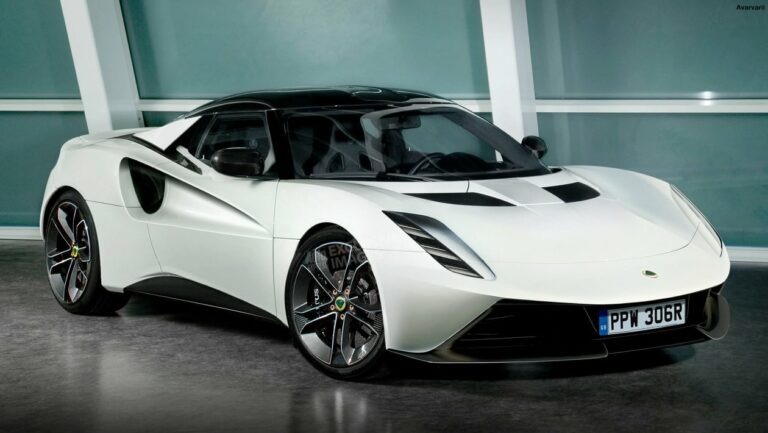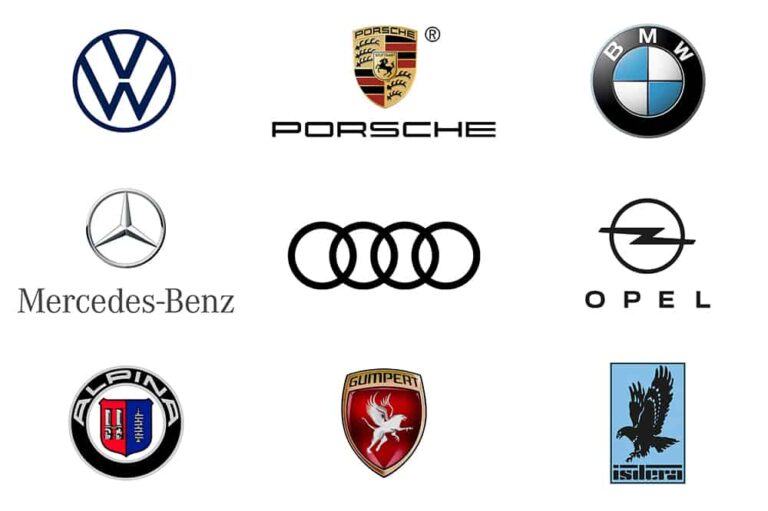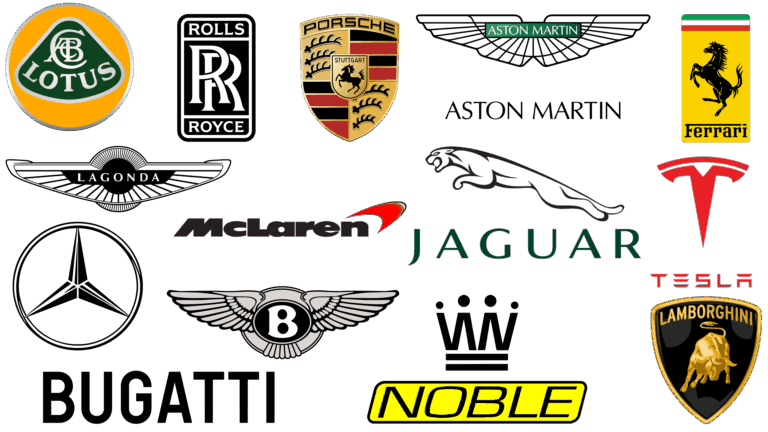Top 20 Luxury Car Brands: A Comprehensive Guide to Automotive Excellence
Top 20 Luxury Car Brands: A Comprehensive Guide to Automotive Excellence cars.truckstrend.com
In the realm of automobiles, luxury transcends mere transportation. It embodies a fusion of exquisite craftsmanship, groundbreaking technology, unparalleled performance, and an ownership experience meticulously tailored to deliver supreme comfort and prestige. A luxury car is more than just a vehicle; it’s a statement, a sanctuary, and a testament to engineering prowess and artistic design.
Understanding the landscape of luxury car brands is essential for anyone aspiring to own one, or simply appreciating the pinnacle of automotive innovation. This guide delves into what defines luxury, highlights the leading brands, and offers practical insights for navigating this exclusive market.
Top 20 Luxury Car Brands: A Comprehensive Guide to Automotive Excellence
The Allure of Automotive Luxury: Defining the Elite
What elevates a car from premium to truly luxurious? It’s a multifaceted concept built upon several core pillars:
- Exquisite Craftsmanship and Materials: Luxury cars are renowned for their meticulous attention to detail. Interiors feature the finest leathers, real wood veneers, genuine metals, and high-quality stitching. Every surface, every switch, and every panel is designed and assembled with precision, often by hand.
- Unrivaled Performance and Engineering: Beyond raw power, luxury performance involves refined engines, smooth transmissions, sophisticated suspension systems, and precise handling. The driving experience is designed to be exhilarating yet effortless, often offering a serene ride even at high speeds.
- Cutting-Edge Technology and Innovation: Luxury brands are often at the forefront of automotive technology. This includes advanced infotainment systems, state-of-the-art driver-assistance systems (ADAS), innovative connectivity features, and bespoke comfort controls that anticipate and cater to the driver’s needs.
- Supreme Comfort and Ergonomics: From multi-adjustable seats with massage functions to advanced climate control and noise cancellation, luxury vehicles prioritize occupant comfort. The cabin is designed as a serene environment, isolated from the outside world.
- Brand Heritage and Exclusivity: Many luxury brands boast rich histories, a legacy of innovation, and a reputation for excellence built over decades, sometimes centuries. This heritage contributes to their prestige and exclusivity, making ownership a symbol of discerning taste and success.
- Personalization and Bespoke Options: The ability to customize a vehicle to one’s exact specifications, from unique paint colors to interior trim choices and even specific stitching patterns, is a hallmark of true luxury. Many brands offer bespoke programs for ultimate personalization.
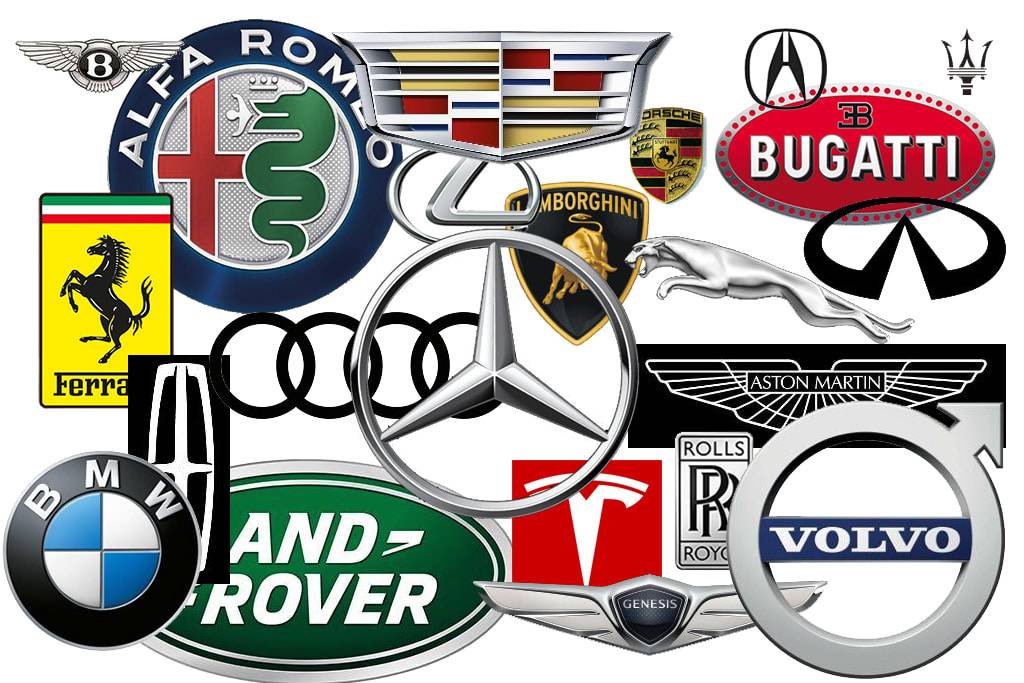
These elements combine to create not just a car, but an experience – a journey defined by comfort, power, and prestige.
Decoding Luxury: What Makes a Brand Stand Out?
When evaluating luxury car brands, several key factors contribute to their distinguished status:
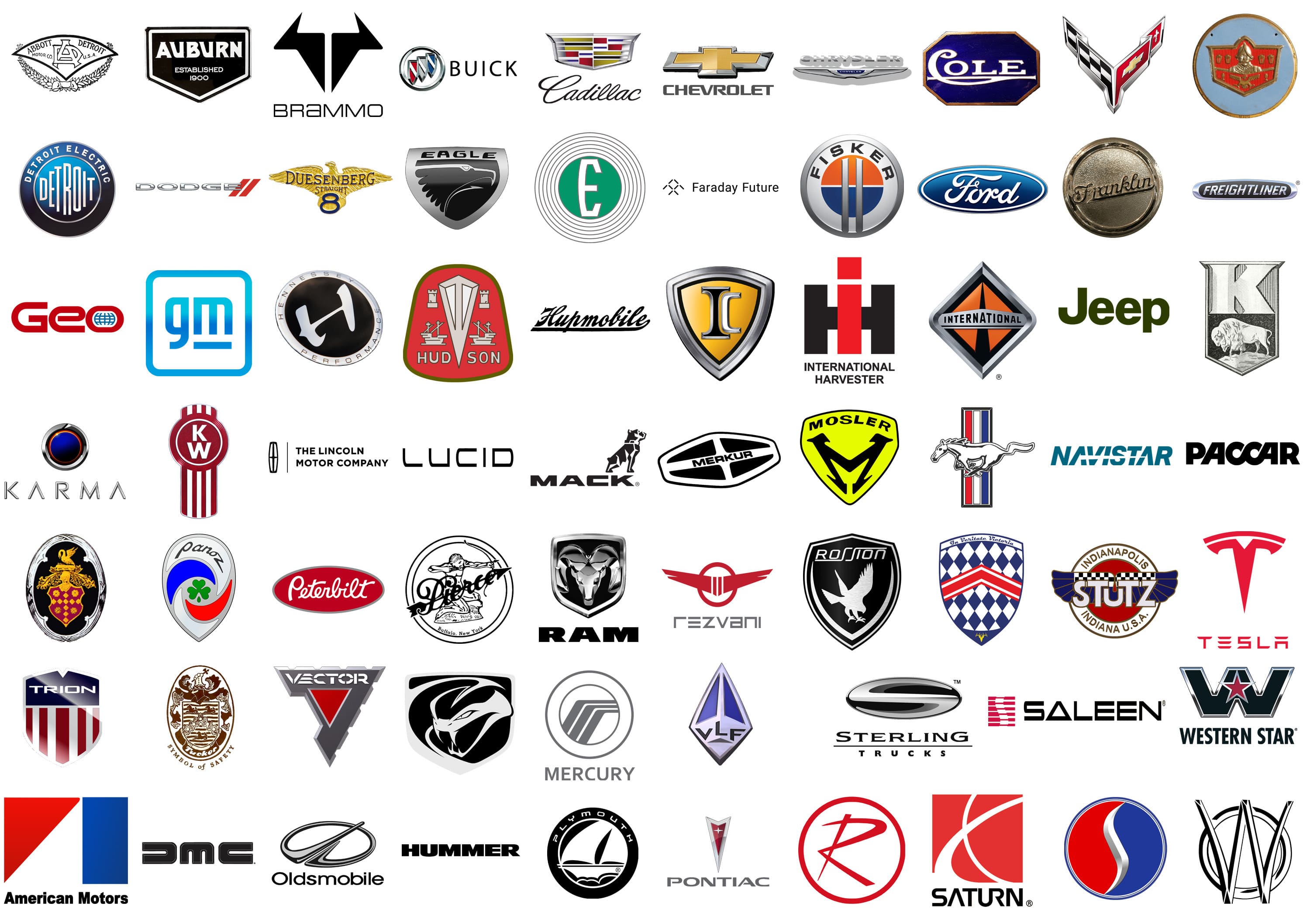
- Engineering Excellence: Beyond horsepower figures, it’s the seamless integration of power, efficiency, and driving dynamics. This includes advanced chassis design, sophisticated powertrains (including hybrid and electric), and finely tuned suspension systems that balance comfort with responsive handling.
- Interior Opulence and Design: The cabin is where luxury is most profoundly experienced. This involves not just premium materials but also intuitive layouts, ambient lighting, exceptional sound systems, and a general sense of spaciousness and serenity. The design should be both aesthetically pleasing and highly functional.
- Cutting-Edge Technology: Modern luxury cars are digital powerhouses. Look for intuitive infotainment interfaces, comprehensive ADAS suites (adaptive cruise control, lane-keeping assist, automated parking), advanced connectivity options, and innovative features that enhance safety, convenience, and entertainment.
- Brand Heritage and Exclusivity: A brand’s history often dictates its future. Companies with a long legacy of innovation and iconic models tend to command greater respect and perceived value. Exclusivity is maintained through limited production runs, unique models, and a focus on bespoke customer experiences.
- The Ownership Experience: Luxury extends beyond the purchase. This includes premium dealership experiences, personalized customer service, extended warranties, concierge services, and even exclusive events. The aim is to make every aspect of owning the vehicle as seamless and enjoyable as possible.
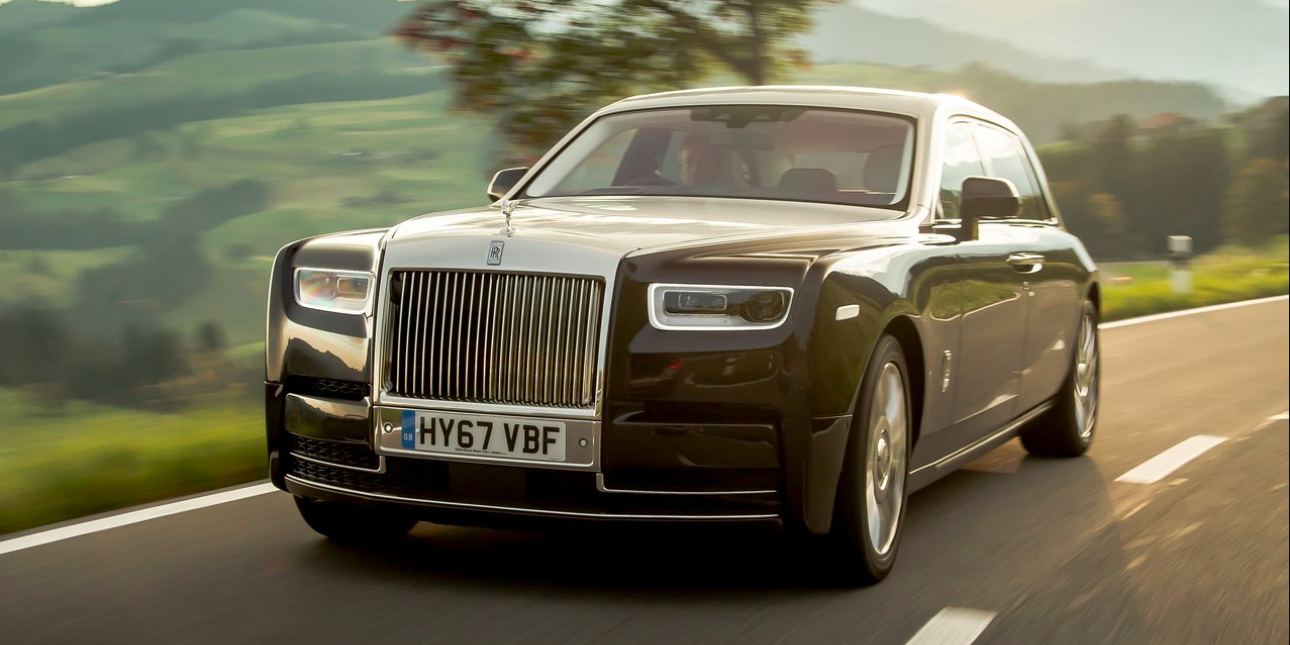
The Pantheon of Prestige: Unveiling the Top 20 Luxury Car Brands
The world of luxury automobiles is diverse, encompassing everything from ultra-performance sports cars to opulent sedans and sophisticated SUVs. Here’s a curated list of the top 20 luxury car brands that consistently set the benchmark for excellence:
- Rolls-Royce (UK): The epitome of ultra-luxury, known for bespoke craftsmanship, unparalleled comfort, and silent power.
- Bentley (UK): Blending British elegance with formidable performance, offering lavish interiors and grand touring capabilities.
- Ferrari (Italy): Iconic for its racing heritage, breathtaking performance, exquisite design, and an exclusive ownership experience.
- Lamborghini (Italy): Synonymous with dramatic design, extreme performance, and a raw, visceral driving experience.
- Aston Martin (UK): Fusing beautiful design, powerful engines, and a distinctive British sporting luxury feel.
- Porsche (Germany): A master of high-performance sports cars and SUVs, offering thrilling dynamics with everyday usability.
- Mercedes-Benz (Germany): A global leader in luxury, known for innovation, advanced technology, and a wide range of sophisticated vehicles (including the ultra-luxury Maybach sub-brand).
- BMW (Germany): Emphasizing "the ultimate driving machine" with a focus on dynamic performance, cutting-edge technology, and premium comfort.
- Audi (Germany): Recognized for its sophisticated design, advanced technology (especially quattro AWD), and high-quality interiors.
- Lexus (Japan): Toyota’s luxury arm, renowned for exceptional reliability, refined comfort, quiet cabins, and impeccable service.
- Land Rover (UK): The definitive luxury SUV brand, offering unparalleled off-road capability combined with lavish interiors and supreme comfort.
- Maserati (Italy): Blending Italian passion, distinctive styling, and powerful engines with a focus on sport luxury.
- McLaren (UK): Specializing in high-performance supercars and hypercars, known for lightweight construction and track-focused engineering.
- Genesis (South Korea): Hyundai’s luxury marque, rapidly gaining recognition for impressive design, advanced technology, and competitive pricing.
- Cadillac (USA): America’s enduring luxury brand, evolving with bold designs, advanced technology, and powerful performance.
- Lincoln (USA): Ford’s luxury division, focusing on serene comfort, elegant design, and a distinctly American luxury experience.
- Volvo (Sweden): Redefining luxury with a focus on minimalist Scandinavian design, world-leading safety innovations, and sustainable practices.
- Tesla (USA): Pioneering electric luxury with cutting-edge technology, impressive performance, and a unique, minimalist interior design.
- Alfa Romeo (Italy): Known for passionate driving dynamics, exquisite styling, and a rich racing heritage, offering a distinct sport-luxury appeal.
- Polestar (Sweden): Volvo’s performance electric vehicle brand, combining minimalist design, sustainable materials, and dynamic electric performance.
Beyond the Showroom: Important Considerations for Luxury Car Ownership
Owning a luxury car is a dream for many, but it comes with unique considerations:
- Cost of Ownership: While the initial purchase price is significant, factor in higher insurance premiums, potentially more expensive maintenance (due to specialized parts and labor), and faster depreciation rates for some models.
- Depreciation: Luxury vehicles, especially high-end ones, can depreciate significantly in their first few years. Research specific models to understand their resale value trends.
- Maintenance and Servicing: These vehicles often require specialized tools and highly trained technicians. Adhering to the manufacturer’s recommended service schedule is crucial for longevity and performance, and these services can be costly.
- Fuel Efficiency: While some luxury brands are embracing electrification, many performance-oriented luxury cars still consume premium fuel at a higher rate.
- Technological Complexity: The advanced systems, while enhancing comfort and safety, can also be complex to understand and maintain. Ensure you’re comfortable with the learning curve.
- Electrification Trend: The luxury segment is rapidly shifting towards electric vehicles. Consider whether a hybrid or fully electric luxury car aligns with your values and needs, as they often offer silent operation, instant torque, and lower running costs.
Practical Advice and Actionable Insights
- Define Your Priorities: Are you seeking ultimate performance, supreme comfort, cutting-edge technology, or pure prestige? Your answer will narrow down your options.
- Set a Realistic Budget: Don’t just consider the purchase price. Factor in insurance, maintenance, fuel, and potential depreciation.
- Research Thoroughly: Read reviews, watch videos, and compare models from different brands. Pay attention to owner feedback regarding reliability and the ownership experience.
- Test Drive Extensively: A luxury car needs to feel right. Spend ample time test-driving your top choices on various road conditions. Evaluate comfort, handling, technology interface, and overall driving dynamics.
- Consider Certified Pre-Owned (CPO): A CPO luxury car can offer significant savings while providing peace of mind through manufacturer warranties and rigorous inspections.
- Understand the Technology: Familiarize yourself with the infotainment system and driver-assistance features during your test drive. Ensure they are intuitive and enhance your driving experience, rather than complicate it.
- Evaluate the Ownership Experience: Research the dealerships in your area. Do they offer excellent service, convenient appointments, and a pleasant overall experience?
Top 20 Luxury Car Brands: Estimated Starting Prices & Key Characteristics
Below is a table summarizing the Top 20 Luxury Car Brands, along with their country of origin, what they are typically known for, and an estimated starting Manufacturer’s Suggested Retail Price (MSRP) for their entry-level models. Please note that these prices are highly variable based on model, trim, options, region, and market conditions, and serve as general estimates.
| Rank | Brand | Country of Origin | Known For | Estimated Starting MSRP (USD) |
|---|---|---|---|---|
| 1 | Rolls-Royce | UK | Ultimate bespoke luxury, silent ride, prestige | $350,000+ |
| 2 | Bentley | UK | Grand touring, opulent interiors, powerful elegance | $200,000+ |
| 3 | Ferrari | Italy | High-performance sports cars, racing heritage | $250,000+ |
| 4 | Lamborghini | Italy | Extreme performance, dramatic design, exclusivity | $200,000+ |
| 5 | Aston Martin | UK | Elegant sports cars, British charm, powerful engines | $150,000+ |
| 6 | Porsche | Germany | Sports car dynamics, performance SUVs, everyday usability | $70,000+ |
| 7 | Mercedes-Benz | Germany | Innovation, comfort, technology, diverse luxury range | $45,000+ (C-Class/GLA) |
| 8 | BMW | Germany | Driving dynamics, sport luxury, advanced technology | $40,000+ (2 Series/X1) |
| 9 | Audi | Germany | Sophisticated design, Quattro AWD, tech-forward | $40,000+ (A3/Q3) |
| 10 | Lexus | Japan | Reliability, refined comfort, quiet cabins, service | $40,000+ (IS/UX) |
| 11 | Land Rover | UK | Luxury SUVs, off-road capability, opulent interiors | $50,000+ (Discovery Sport) |
| 12 | Maserati | Italy | Italian flair, distinctive sound, sport-luxury | $80,000+ |
| 13 | McLaren | UK | Lightweight supercars, track performance | $200,000+ |
| 14 | Genesis | South Korea | Value, modern design, advanced tech, emerging luxury | $40,000+ (G70/GV60) |
| 15 | Cadillac | USA | Bold American luxury, performance, comfort | $40,000+ (CT4/XT4) |
| 16 | Lincoln | USA | Serene comfort, quiet ride, American elegance | $45,000+ (Corsair) |
| 17 | Volvo | Sweden | Safety, minimalist design, sustainability, comfort | $40,000+ (S60/XC40) |
| 18 | Tesla | USA | Electric performance, cutting-edge tech, minimalist design | $40,000+ (Model 3) |
| 19 | Alfa Romeo | Italy | Passionate driving, distinct styling, heritage | $45,000+ (Giulia/Tonale) |
| 20 | Polestar | Sweden | Performance EVs, minimalist design, sustainability | $50,000+ (Polestar 2) |
Note: "Starting MSRP" typically refers to the Manufacturer’s Suggested Retail Price for the base model, excluding options, destination charges, taxes, and fees. Prices can fluctuate significantly.
Frequently Asked Questions (FAQ)
Q1: What exactly defines a luxury car?
A1: A luxury car is defined by its superior craftsmanship, premium materials, advanced technology, high-level performance, exceptional comfort, and the prestige associated with its brand and ownership experience. It goes beyond basic transportation to offer an elevated driving and passenger experience.
Q2: Are luxury cars more expensive to maintain?
A2: Generally, yes. Luxury cars often use specialized parts and require highly skilled technicians for maintenance and repairs, which can lead to higher labor and part costs compared to mainstream vehicles.
Q3: Do luxury cars hold their value well?
A3: It varies significantly by brand and model. Some high-demand performance luxury cars (e.g., certain Porsche or Ferrari models) can hold their value well or even appreciate. However, many mainstream luxury sedans and SUVs tend to depreciate faster than economy cars, especially in their first few years.
Q4: What’s the difference between a luxury car and a premium car?
A4: "Premium" often refers to higher-trim mainstream cars or brands that offer enhanced features and materials above basic models (e.g., Honda Accord Touring). "Luxury" implies a fundamentally different level of engineering, materials, bespoke options, brand prestige, and overall ownership experience that goes beyond simply adding features.
Q5: Should I buy a new or used luxury car?
A5: Buying a used luxury car, especially a Certified Pre-Owned (CPO) one, can offer significant savings on the initial purchase price while still providing warranty coverage and peace of mind. New luxury cars offer the latest technology, full customization options, and the prestige of being the first owner. Your choice depends on budget, desire for the latest features, and risk tolerance.
Q6: Are electric vehicles (EVs) considered luxury cars?
A6: Absolutely. Many EVs, like those from Tesla, Lucid, Polestar, and high-end offerings from Mercedes-Benz (EQ line) and Porsche (Taycan), are considered luxury vehicles due to their cutting-edge technology, impressive performance, premium interiors, and brand positioning. The luxury segment is rapidly embracing electrification.
Conclusion
The world of luxury car brands is a testament to automotive excellence, where innovation meets artistry and performance converges with unparalleled comfort. From the timeless elegance of Rolls-Royce to the electrifying future represented by Tesla and Polestar, each brand offers a unique interpretation of what it means to be truly luxurious. Understanding the nuances of these brands, along with the practicalities of ownership, empowers enthusiasts and prospective buyers to make informed decisions and truly appreciate the pinnacle of automotive engineering and design. Owning a luxury car is not just about transportation; it’s about embracing a lifestyle defined by quality, prestige, and an exceptional driving experience.


